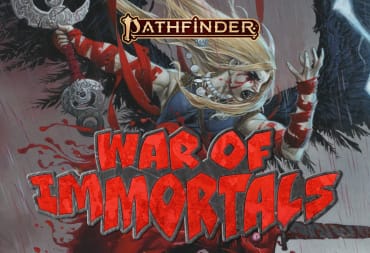The issue of mods is something that is on a lot of gamer’s minds recently, as yesterday Valve Software unexpectedly announced that for Bethesda Softwork’s title The Elder Scrolls V: Skyrim, modders can now sell their work on Steam.  In a not unexpected reaction, the nearly universal backlash against this has been impressive to say the least. Right now, there are over 43,000 supporters that have signed a petition asking Valve to “…reject this act… [as] mods should be a free creation… made by people who wish to add to the game so others can also enjoy said creation with the game.” Notable YouTube critic TotalBiscuit has also put in his two cents, having a more mixed reaction to the entire situation. In the video, the YouTuber states that “… I think that people are a little stuck in the old idea that all modding should be a passion project or modding should be free… the idea that getting paid and doing something out of passion is somehow mutually exclusive…” This is a very complex issue that cannot fully be explained in this editorial. However, there is a question that should be asked by all of those on both sides of this issue: should mods be monetized? Essentially, mods have been a part of the DNA of PC gaming since the very beginning of its existence. The urge to experiment on games and their code has always been there, and for a long time some companies have supported this, including Valve Sofrtware. Personally, I grew up playing with Blizzard Entertainment’s Warcraft III and its various mods. Mods like Footmen Frenzy, Sniper Elite, Uther Party, Pass the Bomb, Wintermaul… I could go on and on about excellent mods/maps that were released for Warcraft III, and I haven’t even listed some of the more famous mods from Warcraft III, just a few of the ones that I personally enjoyed. If we were to release Warcraft III on the Valve store, with the current 25% to 75% profit ratio for the modder and Valve/Game Publisher, things would be very different. A lot of the mods that I mentioned were created by one person or by a team of people, but eventually other modders picked up the reins to continue their work through either the official blessing of the mod creator or by just going their own way. Imagine now that money were involved in this issue, and the entire situation would be changed. There would not be an Ultimate Footmen Frenzy mod, or the many other variations of that game-type. Creativity could easily be threatened by bringing money into the equation. Instead, for better or worse, gamers would be stuck with that they were given. If Skyrim were to be patched and the mod that you purchased broken as a result, you could very well be completely out of luck. Indeed, for in the FAQ Valve asks users “… to post politely on the Workshop item's page and let the mod author know the details of what you are seeing.” This is completely unacceptable. Personally, I have never completely understood the love and fascination that gamers have given to Valve as a company, or Gabe Newell in particular, although at least it is easy to see how. The old (albeit reworded) adage continues to ring true for companies everywhere: ‘treat and spoil your customers and they will reward you tenfold.’ Throughout the years, Steam has achieved a virtual stranglehold on the market, and with its Steamworks DRM, a lot of games can only be activated on Steam, regardless of where it was originally purchased. This gives Valve the opportunity to do things that ordinarily would be challenged by a truly competitive rival, which does not currently exist on the PC digital market. Regarding Steam Workshop and Mods, taken as an idea in and of itself, it is a good one. While other places such as MOD DB or Nexus are well-respected and well maintained websites dedicated towards modding, the pull of having mods and games tightly curated, with only having to click ‘subscribe’ in order to try out a mod, is definitely tempting. Introducing money to the mix always complicates things, of course, but it does not have to be this way. The idea of Patreon has been brought up, and it could work well for all parties involved. Continuing, no matter how good a mod could be, in the end it would be up to the community at large if they want to support the content creator. The situation already needs to change, so let me produce an alternative. Instead of requiring players to pay for dubiously supported mods, it would be more along the lines of whether or not you wish to support it. You would have the choice, and this would be the only choice for those wishing to make money with their mods… you would be beholden to the community. To be blunt, if they do not like your work, then you won’t make money. If a mod stops working and the modder does not seem to care whether the mod works or not, it would be up to the community to respond. At the moment, Patreon has individuals or groups of individuals posting their work online in a somewhat Kickstarter-like fashion. A lot of those who are hosting Patreons used to work for free, but with Patreon there is the potential of doing what you truly love for a living, and this has been the truth thus far: if people like what you are doing, they will support your work. Mods by themselves are not original games; they are the gaming equivalent of writers playing in an already established sandbox, bringing their own ideas and insight into improving their experience (along with many others) in some way, whether it be big or small. Ultimately, the question must be asked anew: should mods be monetized? It really depends on you, me, and everyone else who chooses to have a voice in this issue. My personal feelings on this will not be the same as others, but I hope this editorial has been somewhat useful in conglomerating some of the more… interesting aspects of paying for mods. For myself, if there are those who wish to reward the mod creator in some type of monetary fashion, then let it be so. I understand that Valve Software and companies such as Bethesda Softworks will have their cut at the end of the day, but at the moment something has to change on a large scale, as the 25-75% ratio is completely laughable and absurd. Overall, it cannot be understated. This issue will likely shape the future of PC Gaming as a whole. If anyone wants to have a say in the matter, speak out and act now, or forever be silent. For more information, stay tuned to TechRaptor.
In a not unexpected reaction, the nearly universal backlash against this has been impressive to say the least. Right now, there are over 43,000 supporters that have signed a petition asking Valve to “…reject this act… [as] mods should be a free creation… made by people who wish to add to the game so others can also enjoy said creation with the game.” Notable YouTube critic TotalBiscuit has also put in his two cents, having a more mixed reaction to the entire situation. In the video, the YouTuber states that “… I think that people are a little stuck in the old idea that all modding should be a passion project or modding should be free… the idea that getting paid and doing something out of passion is somehow mutually exclusive…” This is a very complex issue that cannot fully be explained in this editorial. However, there is a question that should be asked by all of those on both sides of this issue: should mods be monetized? Essentially, mods have been a part of the DNA of PC gaming since the very beginning of its existence. The urge to experiment on games and their code has always been there, and for a long time some companies have supported this, including Valve Sofrtware. Personally, I grew up playing with Blizzard Entertainment’s Warcraft III and its various mods. Mods like Footmen Frenzy, Sniper Elite, Uther Party, Pass the Bomb, Wintermaul… I could go on and on about excellent mods/maps that were released for Warcraft III, and I haven’t even listed some of the more famous mods from Warcraft III, just a few of the ones that I personally enjoyed. If we were to release Warcraft III on the Valve store, with the current 25% to 75% profit ratio for the modder and Valve/Game Publisher, things would be very different. A lot of the mods that I mentioned were created by one person or by a team of people, but eventually other modders picked up the reins to continue their work through either the official blessing of the mod creator or by just going their own way. Imagine now that money were involved in this issue, and the entire situation would be changed. There would not be an Ultimate Footmen Frenzy mod, or the many other variations of that game-type. Creativity could easily be threatened by bringing money into the equation. Instead, for better or worse, gamers would be stuck with that they were given. If Skyrim were to be patched and the mod that you purchased broken as a result, you could very well be completely out of luck. Indeed, for in the FAQ Valve asks users “… to post politely on the Workshop item's page and let the mod author know the details of what you are seeing.” This is completely unacceptable. Personally, I have never completely understood the love and fascination that gamers have given to Valve as a company, or Gabe Newell in particular, although at least it is easy to see how. The old (albeit reworded) adage continues to ring true for companies everywhere: ‘treat and spoil your customers and they will reward you tenfold.’ Throughout the years, Steam has achieved a virtual stranglehold on the market, and with its Steamworks DRM, a lot of games can only be activated on Steam, regardless of where it was originally purchased. This gives Valve the opportunity to do things that ordinarily would be challenged by a truly competitive rival, which does not currently exist on the PC digital market. Regarding Steam Workshop and Mods, taken as an idea in and of itself, it is a good one. While other places such as MOD DB or Nexus are well-respected and well maintained websites dedicated towards modding, the pull of having mods and games tightly curated, with only having to click ‘subscribe’ in order to try out a mod, is definitely tempting. Introducing money to the mix always complicates things, of course, but it does not have to be this way. The idea of Patreon has been brought up, and it could work well for all parties involved. Continuing, no matter how good a mod could be, in the end it would be up to the community at large if they want to support the content creator. The situation already needs to change, so let me produce an alternative. Instead of requiring players to pay for dubiously supported mods, it would be more along the lines of whether or not you wish to support it. You would have the choice, and this would be the only choice for those wishing to make money with their mods… you would be beholden to the community. To be blunt, if they do not like your work, then you won’t make money. If a mod stops working and the modder does not seem to care whether the mod works or not, it would be up to the community to respond. At the moment, Patreon has individuals or groups of individuals posting their work online in a somewhat Kickstarter-like fashion. A lot of those who are hosting Patreons used to work for free, but with Patreon there is the potential of doing what you truly love for a living, and this has been the truth thus far: if people like what you are doing, they will support your work. Mods by themselves are not original games; they are the gaming equivalent of writers playing in an already established sandbox, bringing their own ideas and insight into improving their experience (along with many others) in some way, whether it be big or small. Ultimately, the question must be asked anew: should mods be monetized? It really depends on you, me, and everyone else who chooses to have a voice in this issue. My personal feelings on this will not be the same as others, but I hope this editorial has been somewhat useful in conglomerating some of the more… interesting aspects of paying for mods. For myself, if there are those who wish to reward the mod creator in some type of monetary fashion, then let it be so. I understand that Valve Software and companies such as Bethesda Softworks will have their cut at the end of the day, but at the moment something has to change on a large scale, as the 25-75% ratio is completely laughable and absurd. Overall, it cannot be understated. This issue will likely shape the future of PC Gaming as a whole. If anyone wants to have a say in the matter, speak out and act now, or forever be silent. For more information, stay tuned to TechRaptor.
Have a tip, or want to point out something we missed? Leave a Comment or e-mail us at tips@techraptor.net













